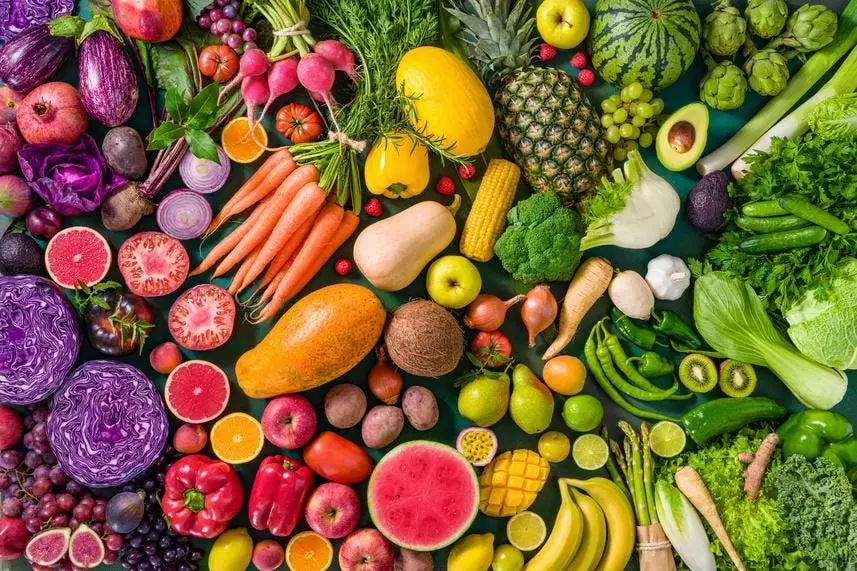Fresh fruits and vegetables continue to be essential components of a healthy diet, hailed for their vast array of nutrients, vitamins, antioxidants, and dietary fibers. As the global population grows and food preferences shift, innovative technologies and practices are stepping up to ensure that nutritious produce remains accessible and appealing to consumers. This article explores two groundbreaking innovations in fresh produce that not only enhance convenience but also promise to improve dietary health.
In developed nations, advancements in agricultural technology have revolutionized the availability of fresh produce. Techniques such as refrigeration, controlled atmosphere storage, and efficient transportation have allowed consumers to enjoy fruits and vegetables year-round. Furthermore, the rise of vertical farming and innovative growing methods is creating opportunities for local sourcing, reducing the carbon footprint associated with transporting food.
One company at the forefront of this movement is GreenOnyx. This Israeli firm has pioneered a unique method of growing a tiny, nutrient-dense plant called Duckweed, scientifically known as Wolffia. These minuscule plants are not only environmentally friendly but also boast impressive nutritional profiles, offering a rich source of protein, dietary fiber, beta-carotene, and vitamin B-12—nutrients often scarce in plant-based diets. Duckweed’s mild flavor and crunchy texture make it an appealing addition to various dishes, potentially introducing children to healthier eating habits.
GreenOnyx markets its Duckweed product under the brand name Wanna Greens. Positioned as a versatile ingredient, Wanna Greens can be easily incorporated into everyday meals, providing a significant nutritional boost. Dr. Lauren Kaufman, a nutrition expert, has weighed in on the benefits of this innovative produce. Her analysis confirms that Duckweed is not just a fad—its nutritional content has been independently verified, marking it as a legitimate option for enhancing healthful eating.
The convenience factor cannot be overstated. With a refrigeration shelf-life of 4 to 6 weeks, Wanna Greens allows consumers to bypass some of the pressures of food waste. This is particularly noteworthy in a time when many households struggle with the guilt of unused groceries. By seamlessly adding nutritious greens to familiar food options, Duckweed could serve as an entry point for healthier eating, especially for those who might otherwise resist vegetables.
Amidst a growing interest in sustainable living and home gardening, another innovative solution emerges. Co-founded by Jacob Pechenik, Lettuce Grow has developed a system that enables consumers to cultivate their own micro-gardens easily. This initiative addresses common barriers to home gardening, such as limited space, time constraints, and a lack of gardening confidence. Lettuce Grow’s product line includes easy-to-manage indoor gardening solutions, designed for both novices and experienced growers alike.
The company’s recent collaboration with Costco aims to reach a larger audience by providing ready-to-grow seedlings and an indoor growing system. For households that may find traditional gardening overwhelming, Lettuce Grow offers a manageable entry point into the world of home-grown produce. This initiative not only fosters a sense of accomplishment among urbanites but also taps into the desire for fresh, pesticide-free vegetables.
Implications for Health and Sustainability
As both Wanna Greens and Lettuce Grow illustrate, these innovations symbolize a broader trend towards personalized and convenient nutrition. They encourage consumers to take an active role in their health while reducing food waste, a significant concern in today’s society. While these products may not be the ultimate solution to global food security issues, they certainly represent a step in the right direction.
Moreover, these initiatives can serve as catalysts for changing consumer perceptions about fresh produce. By creating accessible and enjoyable options, they offer a means to integrate healthier choices into everyday life, enhancing not only individual health but also community well-being. Ultimately, as technology continues to intersect with agriculture, consumers can look forward to a future where nutritious food is both delicious and easy to attain.
The convergence of innovative agricultural practices and advanced technology is shaping a new era in food consumption. With products like Wanna Greens and Lettuce Grow’s micro-gardens, individuals can expect not only healthier diets but also an engaging and enjoyable experience in their quest for fresh, nutritious produce. The potential impact of these innovations on both personal health and broader sustainability efforts is profound and should be embraced by consumers across all demographics.

